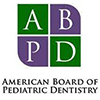If you experience a dental emergency, be sure to call our practice as soon as possible. If you need immediate attention after hours, call our emergency phone number and our on-call staff member will help you. If you are unable to reach our office during an emergency, dial 911.
We are here to help you, any time, any day. When your dental health is at risk, we will do everything we can to make sure that you're treated as soon as possible. While dental emergencies are rare, they can happen, and it's important to know how to take care of your teeth no matter what. Common dental emergencies include:
Toothache: Clean the area of the affected tooth thoroughly. Rinse your mouth vigorously with warm water, or use dental floss to dislodge impacted food or debris. DO NOT place aspirin on the gum or on the aching tooth. If your face is swollen, apply a cold compression and contact your dentist immediately.
Cut Tongue, Lip, or Cheek: Apply ice to the affected area(s). If there is bleeding, apply firm but gentle pressure with a gauze or cloth. If the bleeding cannot be controlled by simple pressure, call a doctor, or visit the emergency room.
Knocked-Out Permanent Tooth: If possible, find the tooth. Handle the tooth by the crown, and be careful not to touch the root portion. You may rinse the tooth but DO NOT clean or handle the tooth excessively. Inspect the tooth for fractures. If it is sound, try to reinsert it in its socket. Hold the tooth in place by gently biting on a gauze or clean cloth. If you cannot reinsert the tooth, place the tooth in a cup containing the saliva of the person that lost it or use milk, but NOT water. The tooth may also be carried in the mouth beside the cheek. The person who lost their tooth must see a dentist IMMEDIATELY! Time is a critical factor in saving the tooth.
Knocked Out Baby Tooth: Contact your pediatric dentist. Unlike a permanent tooth, the baby tooth should not be replanted due to possible damage to the developing permanent tooth. In most cases, no treatment is necessary.
Chipped/Fractured Permanent Tooth: Time is a critical factor, contact your pediatric dentist immediately to reduce the chance of infection or the need for extensive dental treatment. Rinse the mouth with water and apply a cold compress to reduce swelling. If you can find the broken tooth piece, bring it with you to the dentist in a glass of milk, or the person’s saliva. DO NOT USE WATER TO TRANSPORT A CHIPPED TOOTH.
Chipped/Fractured Baby Tooth: Contact your pediatric dentist.
Severe Blow to the Head: Call 911 immediately or take your child to the nearest emergency room.
Possible Broken or Fractured Jaw: Keep the jaw from moving and take your child to the nearest emergency room.
Read more about how to prevent dental emergencies during recreational activities and sports with mouth guards.




 Website Powered by Sesame 24-7™
Website Powered by Sesame 24-7™